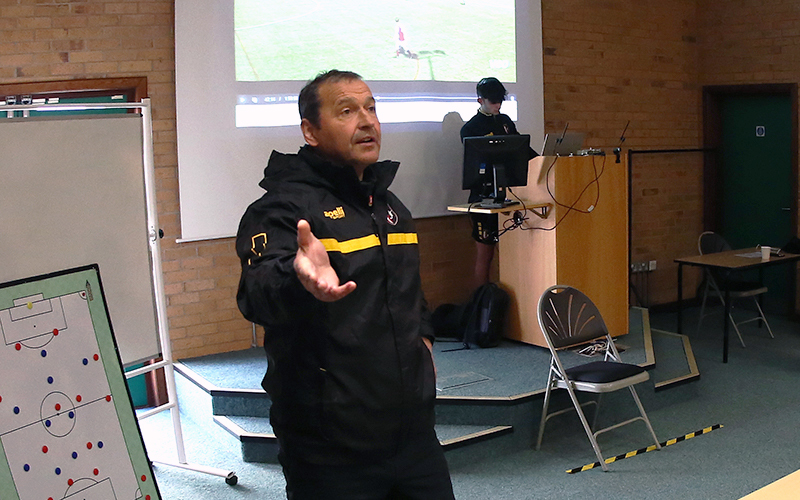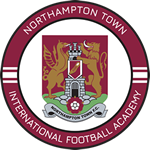
Calderwood on the Euros, crowds, and team culture
With the domestic season now concluded, international fixtures will take centre stage over the summer with the UEFA European Championship starting on 11th June.
NTFC IFA coach Colin Calderwood played every minute of Scotland’s Euro ’96 campaign, finishing narrowly behind England and the Netherlands in Group A, before gaining further caps for his country at the 1998 FIFA World Cup in France.
Featuring in such competitions is something most players will have on their bucket list and the upcoming Euros provides easy access to watch and study the best footballers from across the continent before the new season starts in the Autumn.
Calderwood has therefore explained some key development points that aspiring footballers can take note of during the tournament.
“The basics of football have never changed,” he said, looking back over the course of his career. “The interpretation of what’s happened in the modern game to what happened in the 1970s will be drastically different for some people, but in essence, it’s not.
“People get fascinated by extraordinary passes and there are not many of them; the beauty of the top game is the efficiency of the simple things and it’s about understanding that.
“It’s easy to watch and be critical, but when you stand on a football pitch everyone is slightly more awkward, so making sure you are really good at the basics gives you a foundation to improve.
“It doesn’t matter if you can shoot 30 yards and put the ball in the top corner as that doesn’t happen all the time. You have to know the basics to get into the right position to do that in the first place.”
Since hanging up his boots in 2001, Calderwood has been taking his expertise to professional clubs up and down the football pyramid.
In May he helped Blackpool win promotion to the Sky Bet Championship through the Play-Offs as an assistant coach – his fourth promotion in a coaching role.
“As I said to the lads [at Blackpool], whatever way you go about a formation, there is always a way around it, so then it’s adapting to that.
“It’s not a given formation that wins every game, otherwise everyone would use it, and then how would anybody win?
“It’s about making the feeling around the group better – that human touch, the empathy, and how to generate togetherness, team spirit, and understanding.
“It doesn’t all come from winning, so it’s the players being honest with themselves about their own individual performances rather than a blame culture.”
Off the field, it is hoped that the transition from empty stadiums to fans returning at a limited capacity continues successfully into the Euros during June and July.
Since joining Blackpool in October, Calderwood has found fresh ways to bring the best out of the game whether there are supporters present or not – new experiences to add to his 40 years in the professional game.
“The advantage of there being no crowd is that it brings the group together and makes the club’s principles purer because the influence is none. It’s you against the opposition, so in some ways it is a completely fair environment.
“The disadvantage is that it brings an unknown tension and nervousness, and you don’t get enjoyment without fans there.
“Everyone feels that crowds in any sport make it more enjoyable and certainly the spectators that go are looking forward to it as much as anybody.
“There will be a real surge of enthusiasm and a clamour for the limited tickets to begin with, then after that, when we get back to the time of what we perceived as normal, that is something to be really excited for and to enjoy.”


